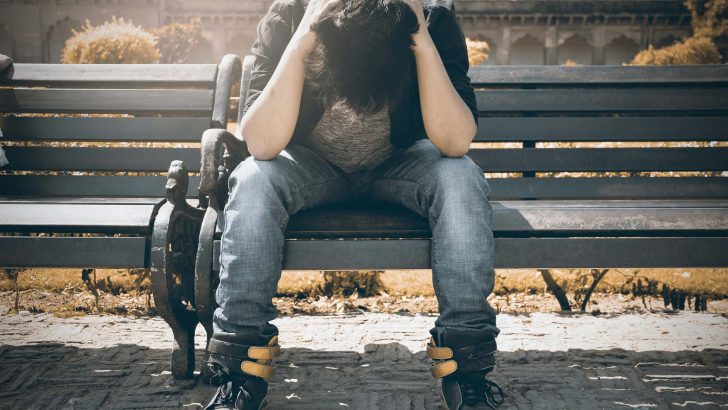Let the preacher say, you have permission to be sad!
In a book, When the Bartender Dims the Lights, Ron Evans writes: “There’s a line I came upon in the musings of a preacher: On a Sunday morning many of the people sitting before you are the walking wounded, and you need to give them permission to be sad. In a world obsessed with happiness, where being great is all that matters, let the preacher say, you have permission to be sad. And in a world where old age becomes the golden years, where every problem can be fixed and every ailment cured, let the preacher say, you have permission to be sad. In a world preoccupied with prolonging life, where death is a forbidden word, let the preacher say, you have permission to die. And let the preacher say, you have permission to live in memories of a lonesome kind.”
Today neither our culture nor our churches give us sufficient permission to be sad. Occasionally, yes, when a loved one dies or some particular tragedy befalls us, we are allowed be sad, to be down, tearful, not upbeat. But there are so many other occasions and circumstances in our lives where our souls are legitimately sad, and our culture, churches, and egos do not give us the permission we need to feel what we are in fact experiencing – sadness. When that is the case, and it often is, we can either deny how we feel and go through the motions of being upbeat, or we can give way to our sadness, but only at price of feeling there is something wrong with us, that we should not be feeling this way. Both are bad.
Sadness
Sadness is an unavoidable part of life and not, in itself, a negative thing. In sadness, there is a cry to which we are often deaf. In sadness, our soul gets its chance to speak and its voice is telling us that a certain frustration, loss, death, inadequacy, moral failure, or particular circumstance or season of our lives is real, bitter, and unalterable. Acceptance is our only choice and sadness is its price. When that voice is not listened to, our health and sanity feel a strain.
For example, in a particularly challenging (raw) book, Suicide and the Soul, the late James Hillman states that sometimes what happens in a suicide is that the soul is so frustrated and wounded that it kills the body. For reasons too complex and many to know, that soul could not make itself heard and was never given permission to feel what it was in fact experiencing. At an extreme, this can kill the body.
We see this in a less-extreme (though also deadly) way in the phenomenon of anorexia among young women. There is an irresistible pressure from the culture (often coupled with actual bullying on social media) to have a perfect body. Unfortunately nature doesn’t issue many of those. Thus, these young women need permission to accept the limitations of their own bodies and to be okay with the sadness that comes with that. Unfortunately this isn’t happening, at least not nearly enough, and so instead of accepting the sadness of not having the body they want, these young woman are forced (no matter the cost) to try to measure up. We see its sad effects.
Dream
Psychotherapists, who do dream work with clients, tell us that when we have bad dreams, the reason is often that our soul is angry with us. Since it cannot make itself heard during the day, it makes itself heard at night when we are helpless to drown it out.
There are many legitimate reasons for being sad. Some of us are born with ‘old souls’, poets, over-sensitive to the pathos in life. Some of us suffer from bad physical health, others from fragile mental health. Some of us have never been sufficiently loved and honoured for who we are; others have had our hearts broken by infidelity and betrayal. Some of us have had our lives irrevocably ripped apart by abuse, rape, and violence; others are simply hopeless, frustrated romantics with perpetually crushed dreams, agonising in nostalgia. Moreover, all of us will have our own share of losing loved ones, of breakdowns of all sorts, and bad seasons that test the heart. There are a myriad of legitimate reasons to be sad.
This needs to be honoured in our Eucharists and in other Church gatherings. Church is not just a place for upbeat celebration. It is also supposed to be a safe place where we can break down. Liturgy too must give us permission to be sad.
D.H. Lawrence once famously wrote:
“The feeling I don’t have, I don’t have.
The feelings I don’t have, I won’t say I have.
The feeling you say you have, you don’t have.
The feelings you would like us both to have, we neither of us have.”
We need to be true to our souls by being true to its feelings.


 Fr Ronald Rolheiser
Fr Ronald Rolheiser
